France, Netherlands Urge Citizens To Leave Iran As Soon As Possible
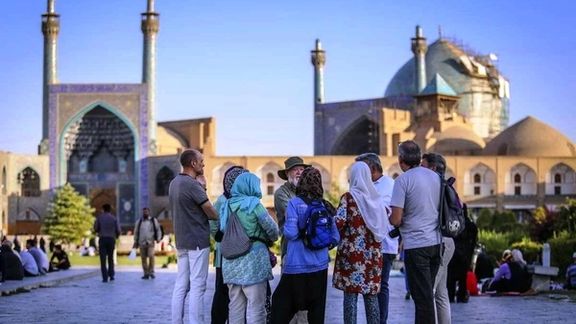
The French Foreign Ministry has urged all its nationals to "leave Iran as soon as possible given the risk of arbitrary detention to which they are exposed."

The French Foreign Ministry has urged all its nationals to "leave Iran as soon as possible given the risk of arbitrary detention to which they are exposed."
"Any French visitor, including dual nationals, is exposed to a high risk of arrest, arbitrary detention and unfair trial," read a Friday statement by Paris.
Earlier Thursday, Paris condemned Tehran for airing a video of a French couple, who say they are spies of the French intelligence service.
In order to build a narrative of foreign engendered protests, Iranian state media on Thursday released a trailer of an apparently longer program featuring forced confessions of Cécile Kohler, an educator who heads the teachers’ union National Federation of Education, Culture and Vocational Training (FNEC FP-FO) and her husband Jacque Paris.
In the short clip, they say they are agents of the French intelligence service, and were sent to Iran to prepare grounds for riots. State TV said the two French citizens had entered Iran with "chunks of money ... which was meant to fund strikes and demonstrations." "Our goal at the French security service is to pressure the government of Iran," said Paris in the video.
Moreover, the Dutch government on Friday urged all Dutch nationals to leave Iran and advised against all travel to the country, Dutch news agency ANP quoted Foreign Minister Wopke Hoekstra as saying.
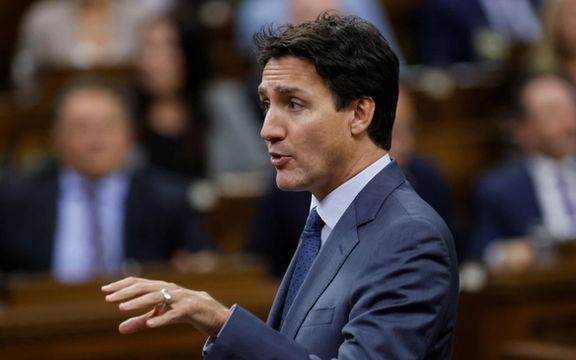
Canada has finally announced sanctions against Iran’s Revolutionary Guard (IRGC), permanently banning over 10,000 of its officers from entering Canada.
Prime Minister Justin Trudeau said Canada has designated Iran's IRGC leadership, adding that “we will restrict financial transactions with the Islamic Republic of Iran associated with the IRGC and the proxies that support them. These actions are some of the strongest measures anywhere against Iran.”
Trudeau also told Iranian women, from schoolgirls to grandmothers, "We stand with you, and we will continue to do so." He added, “To the strong, resilient, and proud Iranian Canadian community, we hear your voices. We heard your calls for action.”
“We’re using the most powerful tools at our disposal to crack down on Iran's brutal regime. We'll be pursuing a listing of IRGC leadership under our Immigration and Refugee Protection Act, making over 10,000 senior IRGC members inadmissible to Canada,” he said.
International reactions to Iran’s crackdown on ongoing popular protests are growing, with more and more countries condemning Tehran’s behavior, summoning envoys, or adopting resolutions.
He also touched upon the issue of money-laundering and the IRGC’s vast sway across the Middle East, saying, “We intend to massively expand targeted sanctions under Special Economic Measures Act to hold to account those people most responsible for Iran's egregious behavior. We are expanding Canada’s capacity to fight money laundering and illicit financial activity, as well as to crack down on foreign interference to protect Iranian Canadians and other communities in Canada.”
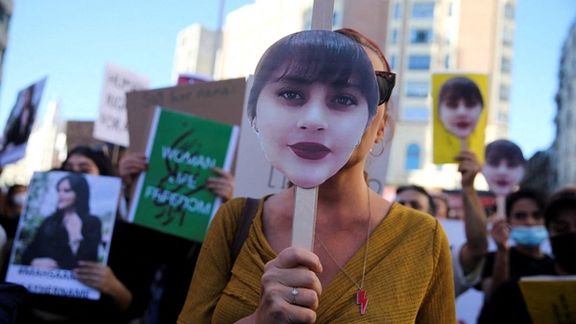
Deputy premier and finance minister Chrystia Freeland said, “The IRGC leadership are terrorists, the IRGC is a terrorist organization. And today by listing the Iranian regime and the IRGC leadership under Canada's Immigration and Refugee Protection Act, we're recognizing these facts."
However, the Canadian government did not officially designate the IRGC as a terrorist organization as many were expecting. Asked about why the government has refrained from such a step, Trudeau avoided a direct answer, saying that his government has found the best legal provisions to put strong sanctions, similar to measures implemented during the Bosnian and Rwandan conflicts.
On October 3, Canada imposed new sanctions on Iran under the Special Economic Measures Act, in response to gross human rights violations, including its systematic persecution of women and in particular, the egregious actions committed by Iran’s so-called ‘Morality Police’ and its leadership. Canada also implemented sanctions against Iran’s security and intelligence apparatus for its destabilizing activities across the region and the regime’s propaganda and misinformation apparatus.
The US State Department also said on Friday that it would continue to coordinate with its allies and partners on how to respond to Iran's "bloody crackdown" on protesters and its "state-sponsored violence" against women.
Earlier on Friday, 30 Conservative members of UK Houses of Commons and Lords stressed that the prospect of change in Iran has never been this strong, urging the UK government to recognize the right of the Iranian people to defend themselves by any means necessary and to overthrow the regime.
The European Parliament adopted a resolution Thursday condemning Mahsa Amini’s killing and voiced support for protests demanding change in the country.
The resolution instructed all member states “to use the mechanisms envisaged in the EU Guidelines on Human Rights Defenders to support and protect these individuals [activists, protesters], in particular women’s rights defenders and EU-Iranian dual nationals.”
US Envoy for Iran Rob Malley told NPR that "What US wants is a government in Iran that respects people's fundamental rights. It's not a policy of regime change. It's a policy of backing people who're protesting peacefully, because they want to be able not to wear a headscarf yet face oppressive system."
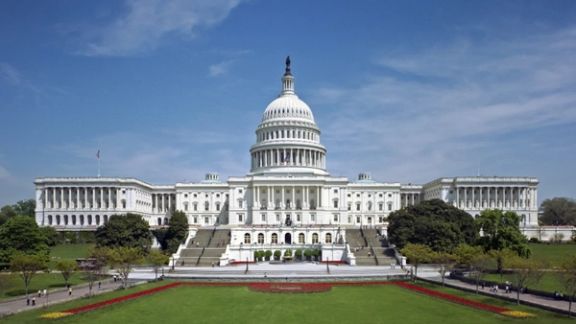
The Senate Foreign Relations Committee is considering a bill to support global Internet freedom, following government disruption of access in Iran amid protests.
Iran International has reviewed a copy of a draft of a bill, which is being circulated among Senators on foreign relations committee. The bill is not named, and it is not on the Committee’s agenda calendar yet.
Sources familiar with US Government Internet freedom agenda told Iran International Congressional correspondent Arash Aalaei that there has been solid support in US Congress lately for Internet freedom, since the uprising in Iran, to provide free and accessible internet connectivity to Iranians.
After protests began in mid-September the Biden Administration pledged to help the people in Iran to circumvent Internet filtering as well as providing alternative methods of connectivity as opposed to traditional land and phone line internet.
The bill does not include any mentioning of any specific countries, but it mandates the Secretary of State to provide a comprehensive strategy to support global free internet, prioritizing countries and regions that are being repressed by continuous shutdowns of Internet.
The Iranian government has a two-decade old policy of restricting content that can be accessed on the Internet and during protests disrupts connectivity to prevent information sharing as it uses brutal methods to suppress the people.
Sources told Iran International that the bill is already being discussed by the Senate foreign relations committee members and has strong bipartisan support.

The US said Friday that it would continue to coordinate with its allies on how to respond to Iran's "bloody crackdown" on protesters and its "state-sponsored violence" against women.
The US reaction came at the same time that Canada’s Prime Minister Justin Trudeau announced strong measures against Iran’s Revolutionary Guard for its role in ongoing human rights violations.
The Biden Administration has sanctioned Iranian officials involved in implementing repressive measures since popular protests began in mid-September after a 22-year-old woman, Mahsa Amini was killed in the custody of Iran’s religious or ‘morality’ police.
"We are going to continue to coordinate with our allies and partners and respond to Iran's violent crackdown as well as, frankly, its state-sponsored violence against women," State Department spokesman Vedant Patel told reporters.
Nationwide protests broke out in Iran after Amini was pronounced dead from injuries to her brain on September 16. Security forces have acted brutally against protesters, killing many including teenagers and children.
"The Iranian government has now killed more than 100 people in its bloody crackdown," he added, citing credible human rights groups.
European countries have also reacted to Iran’s violations of human rights during the protests and have vowed to hold Tehran responsible for its treatment of women. The European Parliament adopted a resolution on Thursday condemning Amini’s killing and asking member states to react to Iran’s violations.
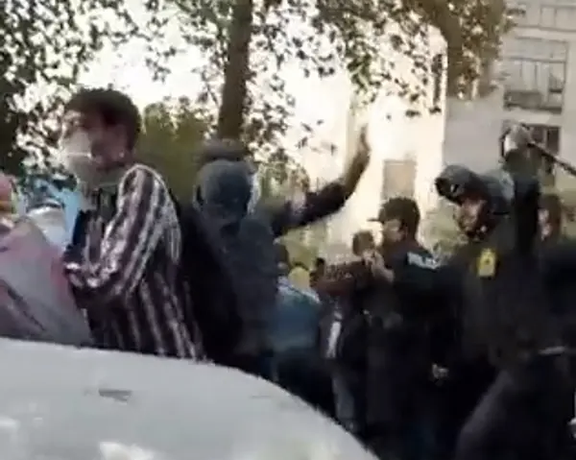
A group of nearly 200 Iranian-born lawyers in Canada have called on Prime Minister Justin Trudeau to support the uprising of the Iranian people against the Islamic Republic.
In a letter on Thursday, they said, “As lawyers of Iranian descent, we can attest that the movement in Iran, with women at its forefront, is of the kind that in recent history has paved the way for the adoption of fundamental freedoms such as those enshrined in the Universal Declaration of Human Rights and the Canadian Charter of Rights and Freedoms -- a movement that must be supported by all proponents of the free world.”
Describing Canada as the home to the second largest Iranian diaspora, they said the country can serve an important role in supporting the people of Iran. “Iranians are desperate to restore their access to the internet to maintain effective communication among themselves and to keep the world informed of the atrocities being committed by the Iranian government.”
They urged the Canadian government to immediately form “a task force with a mandate to review obstacles to internet connectivity in Iran and to devise practical mechanisms that can broaden internet access.”
The lawyers said such an initiative can bring about the involvement of many NGOs and non-profit organizations that can assist in this endeavor, but “are not currently aware of means and modalities to do so.”
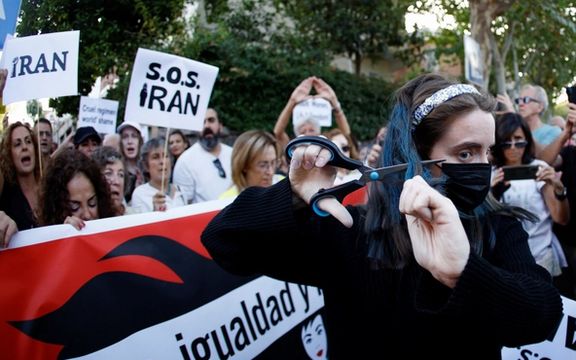
The European Parliament adopted a resolution Thursday condemning Mahsa Amini’s killing in Iran and voiced support for protests demanding change in the country.
The resolution instructed all member states “to use the mechanisms envisaged in the EU Guidelines on Human Rights Defenders to support and protect these individuals [activists, protesters], in particular women’s rights defenders and EU-Iranian dual nationals.”
Iran’s foreign ministry Friday dismissed the resolution calling it “baseless and worthless” blaming extremist elements for pushing a campaign against the Islamic Republic.
On the same day, announcing new sanctions on some Iranian officials engaged in suppressing protests, US Secretary of State Antony Blinken said Washington will keep the pressure on Tehran.
“The United States will promote accountability for all those who direct and support actions that deny the people in Iran their rights to freedom of expression and of peaceful assembly. Today we designated seven security apparatus leaders responsible for the crackdown,” Blinken tweeted.
The United States on Thursday imposed sanctions on seven Iranian officials over the shutdown of internet access and the crackdown on peaceful protesters.
The US Treasury Department in a statement said it imposed sanctions on Iran's minister of interior, Ahmad Vahidi; Communications Minister Eisa Zarepour; and Vahid Mohammad Naser Majid, the head of the Iranian Cyber Police, among others.
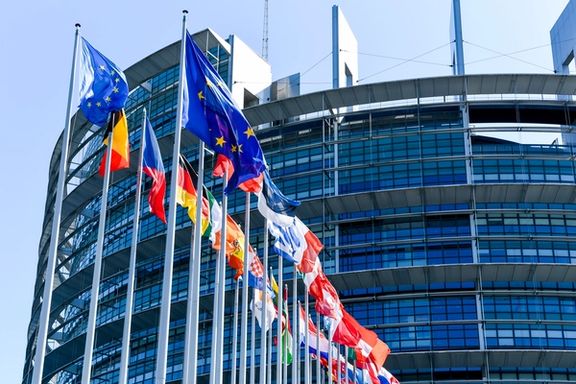
"The United States condemns the Iranian government’s Internet shutdown and continued violent suppression of peaceful protest and will not hesitate to target those who direct and support such actions," Under Secretary of the Treasury Brian Nelson said in the statement.
But White House NSC coordinator John Kirby told the CNN that the administration is still committed to the revival of the 2015 nuclear deal, which would release tens of billion of dollars for Iran. He told CNN, “We still believe diplomacy is the best path forward to prevent Iran from achieving nuke weapon. But we’re not close to a deal right now. I’d not be thinking there's sanctions relief in the offing anytime soon for Iranians right now.”
Iranian activists and other have been urging the Biden Administration to formally withdraw from the nuclear talks in the light of Tehran’s intransigence and its violent crackdown of protesters, especially the killing of young women.
US Envoy for Iran Rob Malley told NPR that "What US wants is a government in Iran that respects people's fundamental rights. It's not a policy of regime change. It's a policy of backing people who're protesting peacefully, because they want to be able not to wear a headscarf yet face oppressive system."
The European Union and its member states are putting significant pressure on Iran, by foreign ministers telling Tehran to stop its mistreatment of citizens. However, Iran’s foreign minister Hossein Amir-Abdollahian has dismissed such calls, insisting that women are protected in his country and others should not intervene.
Addressing the European Parliament October 4, EU foreign policy chief Josep Borrell said that along with European Council President Charles Michel he raised the issue directly with Iranian President Ebrahim Raisi and called for accountability for the death of Mahsa Amini and restraint in the government’s reaction to the demonstrations.
He stressed that member states will continue to consider all the options at their disposal, including “restrictive measures,” at the next Foreign Affairs Council to address the killing of Mahsa Amini and the way Iranian security forces have been responding to the demonstrations.
“Unfortunately, it did not happen," Borrell said, adding that “Numerous reports clearly show that the response of Iranian security and police forces has been disproportionate and resulted in tens of dozens of lives lost.”
Expressing admiration for demonstrations he said, “These are facts, these are not opinions. These are facts. In the streets of Iran, the repression of the demonstrators has left behind tens of people killed.”